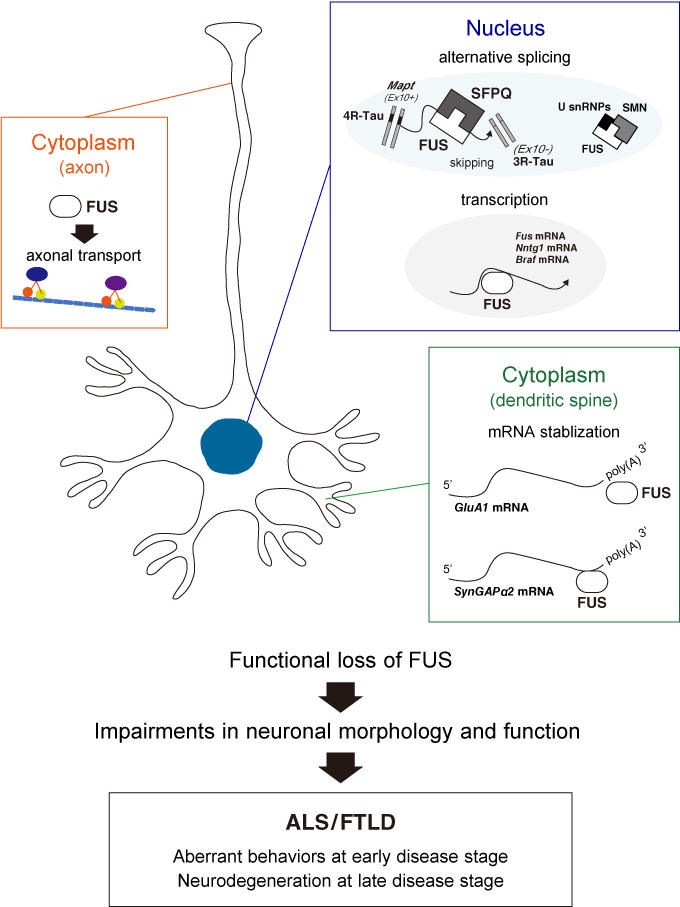Investigation of the molecular function of FUS and tau using animal models.
Fused in sarcoma (FUS) is an RNA-binding protein that regulates RNA metabolism including alternative splicing, transcription, and RNA transportation. FUS is genetically and pathologically involved in amyotrophic lateral sclerosis (ALS)/ frontotemporal lobar degeneration (FTLD). Many pieces of evidence across diverse models suggest that functional loss of FUS can lead to neuronal dysfunction and/or neuronal cell death. Loss of FUS in the nucleus can impair alternative splicing and/or transcription, whereas dysfunction of FUS in the cytoplasm, especially in the dendritic spines of neurons, can cause mRNA destabilization.
Fused in sarcoma (FUS) is an RNA-binding protein that regulates RNA metabolism including alternative splicing, transcription, and RNA transportation. FUS is genetically and pathologically involved in amyotrophic lateral sclerosis (ALS)/ frontotemporal lobar degeneration (FTLD). Many pieces of evidence across diverse models suggest that functional loss of FUS can lead to neuronal dysfunction and/or neuronal cell death. Loss of FUS in the nucleus can impair alternative splicing and/or transcription, whereas dysfunction of FUS in the cytoplasm, especially in the dendritic spines of neurons, can cause mRNA destabilization.
Moreover, FUS is involved in axonal transport and morphological maintenance of neurons. These findings indicate that a biological link between loss of FUS function, Tau isoform alteration, aberrant post-synaptic function, and phenotypic expression might lead to the sequential cascade culminating in FTLD. Thus, to facilitate the development of early disease markers and therapeutic targets of ALS/FTLD it is critical that the functions of FUS and its downstream pathways are unraveled.

- Link to our review article in Front Mol Biosci
- https://www.frontiersin.org/articles/10.3389/fmolb.2018.00044/full
